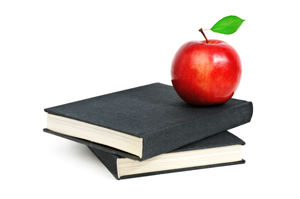
- In Newsletters
- Posted January 01, 2016
Lycopene: Prostate and Breast Health Benefits
Have you ever wondered how fruits and vegetables get their color? Pigments, they are different chemicals that produce colors in fruits and vegetables. Lycopene is the chemical that produces the red found in tomatoes, guava and watermelon. In the last 20 years lycopene has been studied in its relationship to cancer concerns. A lot of hyped research has produced false hope, not so with lycopene. Lycopene has endured many years of scrutiny with continued good results for cancer prevention.
Lycopene, like a lot of things, has run the gamut of studies. Lycopene has survived test-tube studies, observational (human) studies, epidemiologic studies (population), and finally meta-analysis (studies looking at the studies). Remember researchers often don’t find conclusive answers, but produce results that warrant more studies, the name of the game in research. Studies about lycopene have produced; test tube, as well as human studies, indicate the following: plasma carotenoids (beta-carotene, alpha-carotene, lycopene and others) are associated with a reduced risk for prostate, breast and skin cancer(s). Specifically for prostate a-tocopherol (vit. E) and lycopene have precipitated out as inversely reducing PSA at various times. Lycopene was associated with less genomic instability in prostate tissue. Take your choice, some recommend an increase in lycopene rich foods, however others are looking for more clinical support through additional studies.
Hard to believe, adding cooked tomatoes is the best way to increase lycopene into your system. Some studies reveal that cooked tomatoes increase the bio-availability (ability to digest) of lycopene. also noted for females, a 28 percent reduction is noted for the highest levels of lycopene consumption and the prevention of breast cancer. Also noted is a 30% reduction in heart disease.
Supplement forms and cooked tomato products provide the most absorbable forms of lycopene. A study with soups that contain tomato based are excellent sources as well. Can I hear ‘I should have had a V-8’. Drink up.
By Starkie Sowers CN
Edited by Wayne Grubacich
Reference:
- Grainger EM, Hadley CW, Moran NE, et al. A comparison of plasma and prostate lycopene in response to typical servings of tomato soup, sauce or juice in men before prostatectomy. Br J Nutr. 2015 Aug 28;114(4):596-607. Dr. Michael Murray 12/1/15
- Associations between circulating carotenoids, genomic instability and the risk of high-grade prostate cancer.Nordström T, Van Blarigan EL, Ngo V, Roy R, Weinberg V, Song X, Simko J, Carroll PR, Chan JM, Paris PL.Prostate. 2016 Mar;76(4):339-48. doi: 10.1002/pros.23125. Epub 2015 Nov 20.PMID:26585352 http://www.ncbi.nlm.nih.gov/pubmed/26585352
- Carotenoids, retinol, tocopherols, and prostate cancer risk: pooled analysis of 15 studies.Key TJ, Appleby PN, Travis RC, Albanes D, Alberg AJ, Barricarte A, Black A, Boeing H, Bueno-de-Mesquita HB, Chan JM, Chen C, Cook MB, Donovan JL, Galan P, Gilbert R, Giles GG, Giovannucci E, Goodman GE, Goodman PJ, Gunter MJ, Hamdy FC, Heliövaara M, Helzlsouer KJ, Henderson BE, Hercberg S, Hoffman-Bolton J, Hoover RN, Johansson M, Khaw KT, King IB, Knekt P, Kolonel LN, Le Marchand L, Männistö S, Martin RM, Meyer HE, Mondul AM, Moy KA, Neal DE, Neuhouser ML, Palli D, Platz EA, Pouchieu C, Rissanen H, Schenk JM, Severi G, Stampfer MJ, Tjønneland A, Touvier M, Trichopoulou A, Weinstein SJ, Ziegler RG, Zhou CK, Allen NE; Endogenous Hormones Nutritional BiomarkersProstate Cancer Collaborative Group.Am J Clin Nutr. 2015 Nov;102(5):1142-57. doi: 10.3945/ajcn.115.114306. Epub 2015 Oct 7. http://www.ncbi.nlm.nih.gov/pubmed/26447150
- Lycopene and Risk of Prostate Cancer: A Systematic Review and Meta-Analysis.Chen P, Zhang W, Wang X, Zhao K, Negi DS, Zhuo L, Qi M, Wang X, Zhang X.Medicine (Baltimore). 2015 Aug;94(33):e1260. doi: 10.1097/MD.0000000000001260. PMID: 2628741 http://www.ncbi.nlm.nih.gov/pubmed/26287411
- Plasma carotenoids and tocopherols in relation to prostate-specific antigen (PSA) levels among men with biochemical recurrence of prostate cancer.Antwi SO, Steck SE, Zhang H, Stumm L, Zhang J, Hurley TG, Hebert JR.Cancer Epidemiol. 2015 Oct;39(5):752-62. doi: 10.1016/j.canep.2015.06.008. Epub 2015 Jul 9.PMID:2616517 http://www.ncbi.nlm.nih.gov/pubmed/26165176
- The anti-cancer effects of carotenoids and other phytonutrients resides in their combined activity. Linnewiel-Hermoni K, Khanin M, Danilenko M, Zango G, Amosi Y, Levy J, Sharoni Y. Arch Biochem Biophys. 2015 Apr 15;572:28-35. doi: 10.1016/j.abb.2015.02.018. Epub 2015 Feb 21. PMID:2571153 http://www.ncbi.nlm.nih.gov/pubmed/25711533
- The effect of lycopene on the PI3K/Akt signalling pathway in prostate cancer. Chen J, O'Donoghue A, Deng YF, Zhang B, Kent F, O'Hare T.Anticancer Agents Med Chem. 2014;14(6):800-5. Review. PMID: 24851879 http://www.ncbi.nlm.nih.gov/pubmed/24851879
- Recent progress on nutraceutical research in prostate cancer. Li Y, Ahmad A, Kong D, Bao B, Sarkar FH. Cancer Metastasis Rev. 2014 Sep;33(2-3):629-40. doi: 10.1007/s10555-013-9478-9. Review. PMID 24375392 http://www.ncbi.nlm.nih.gov/pubmed/24375392
- Lycopene acts through inhibition of I?B kinase to suppress NF-?B signaling in human prostate andbreast cancer cells. Assar EA, Vidalle MC, Chopra M, Hafizi S Tumour Biol. 2016 Jan 16. [Epub ahead of print PMID:26779636 http://www.ncbi.nlm.nih.gov/pubmed/26779636
- Plasma carotenoids and risk of breast cancer over 20 y of follow-up. Eliassen AH, Liao X, Rosner B, Tamimi RM, Tworoger SS, Hankinson SE. Am J Clin Nutr. 2015 Jun;101(6):1197-205. doi: 10.3945/ajcn.114.105080. Epub 2015 Apr 15. PMID http://www.ncbi.nlm.nih.gov/pubmed/25877493
- Lycopene and beta-carotene induce cell-cycle arrest and apoptosis in human breast cancer cell lines.Gloria NF, Soares N, Brand C, Oliveira FL, Borojevic R, Teodoro AJ. Anticancer Res. 2014 Mar;34(3):1377-86. PMID http://www.ncbi.nlm.nih.gov/pubmed/24596385http://...
Search
Tags
Recent Articles
-
GLP-1 What should we know
February 23, 2025 / NewslettersWhat is GLP-1 and what does it do? GLP-1 is Glucagon-Like Peptide-1 (and yes, there is a 2). GLP-1 i…
-
Activated Charcoal
March 03, 2020 / NewslettersActivated Charcoal: Just a Fad or Here to Stay?According to an article on Yahoo Health, the latest “…
-
Chocolate and Heart Health: Is There a Connection?
February 10, 2020 / NewslettersBy Kimberly Beauchamp, ND Blood vessel function improved significantly, regardless of the amount of…






















